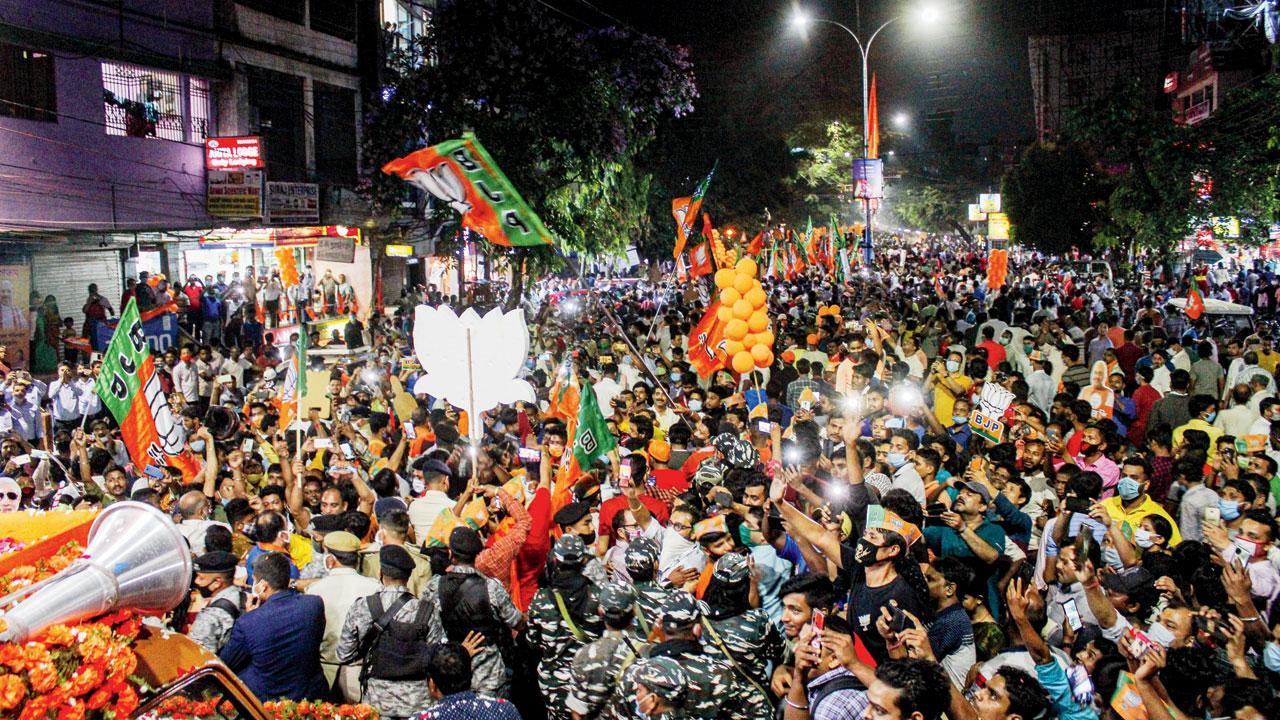If your vote is more important than you, is it even a democracy, as it were?

Despite a universal health nightmare/emergency of the sort we’d never known, we saw politicians actively inviting/exhorting voters to ignore everything
One of the ironies of democracy is BR Ambedkar, perhaps the most educated politician at the time of India’s independence, and the man who drafted the progressive Constitution-granting to every Indian adult an equal right to vote- himself lost every popular election he fought!
ADVERTISEMENT
First, in Bombay North Central constituency in 1951-52, where he stood fourth (defeated by a lesser known Congress candidate, Narayan Kajrolkar); and then in Bhandara constituency by-election in 1954, where he placed third!
This is because, as economist Ajit Ranade puts it, there was then a “Nehru wave”! Which accounted for 45 per cent of India’s votes (not a majority in a real sense, even then).
A ‘lehar’ (or wave), centred on an individual far away, but with the biggest face on posters on every wall-regardless of the quality of the candidate in that neighbourhood-are to elections, what God is to spirituality, I guess. As a voter, you’re made to see yourself as atheist, or believer-with little place for questioning agnostics. Isn’t that how regressive parts/facets of religions work too?
Mixing it with politics, it appears, has the same effect on voters-total/ complete faith in an individual, over institutions. Also, deeming the potentially powerful as deities on one side, and demons on the other-either they’re dumb or geniuses, self-made or elite, corrupt or incorruptible, with you or against you…
A lot like commentary on box-office heroes of showbiz-only set among the relatively glamourless-the election itself is reduced to, ‘he said, she said’ sort of gossip, on news, aimed for the drawing room. The ‘heroes’ fashion themselves as senapati/warriors, and the lead-up is called a campaign, as if on the battlefront.
These are ‘professional’ politicians. What do they do for a living, when not in power? Unsure how many mid-level firms would hire someone for a professional intern, if top-class ‘politicking’-tripping someone on the way up; publicly showing them down-was your core strength on the CV, besides propaganda and pageantry, of course!
Establishing messianic personality cults, bereft of every shade of grey, is the net consequence/outcome of ‘polarisation’, isn’t it? How do you arrive at it, though? Through creating in-groups and out-groups, obviously-and getting the ‘arithmetic’ right, thereafter. That’s an election!
Male/female, relatively rich/poor, healthy/sick are perceptively the only three binaries of people you obviously sense around. Rest is political obfuscations. Chiefly, ‘minority/majority’: Minority/majority, with respect to what? Vote share, what else!
And it’s not like you win an election, because the majority votes for you anyway. You win, because you got a vote more than the next best. The winner takes all. The power over public money and institutions, handed on a plate, is near complete.
Those around, whether big businesses or supposedly independent institutional checks/balances, out of fear/favour, often start lining up to bend into subservience-isn’t this collusion the ultimate form of corruption, which we tend to confuse with bribery instead?
Technically, we can elect new leaders-not new voters. The latter, if they continue to reward the sway of group identities for paltry cash, rather than long-term individual benefits (health, education, etc.), will only produce mass politicians of the sort we’ve always known.
Once in power, simply the incessant fear of losing takes over. India’s 36 states and union territories go to polls every few months, between general elections five years apart. The pomp and hysteria hence never stops.
Although I can’t recall people in general caring so much about every single state election, like it was make-or-break, about a decade ago. Maybe the stakes have gone up. Or just the noise/gyan through mainstream/social media has.
All of the above is mildly entertaining for the relatively uninterested outsider-as average Amits (like me) continue to cynically view politicians as a power-hungry, desperate collective, while they survey us as a faceless crowd.
Something changed during multiple state elections in 2020-21, though. Particularly during peak-pandemic, when India’s young and old were fighting to deflect a killer virus, if they weren’t already infected, dying, or dead.
Despite a universal health nightmare/emergency of the sort we’d never known, we saw politicians actively inviting/exhorting voters to ignore everything-just jostle together instead at their election rallies, like rats before Pied Piper of Hamelin. Staying in and physical distancing were the only known preventive care for COVID-19.
Forget the despicable record with building hospitals, or the tone-deafness of a gossip campaign in the midst of all, it became clear-they didn’t care; about you, as you live. You were a vote. Not a person. You’re otherwise anyway a market, not a customer. This was a war (over you), not another election. How does this happen in a democracy?
Ambedkar kinda warned future Indians it would, if political equality didn’t match social/economic. For a moment, and I hope I’m wrong, it seemed that people had to be saved from their warring politicians first. Now what’s the vaccine for that?
Mayank Shekhar attempts to make sense of mass culture. He tweets @mayankw14. Send your feedback to mailbag@mid-day.com
The views expressed in this column are the individual’s and don’t represent those of the paper.
 Subscribe today by clicking the link and stay updated with the latest news!" Click here!
Subscribe today by clicking the link and stay updated with the latest news!" Click here!






